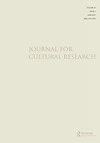通过语言谈判记忆:对东帝汶国家建设过程中官方语言选择的分析
IF 0.6
Q1 CULTURAL STUDIES
引用次数: 0
摘要
本研究的主要目的是通过考虑官方语言的选择如何与记忆政治纠缠在一起,为冲突后社会的记忆文献做出贡献。特别是在东帝汶,选择葡萄牙语作为官方语言,反映了一种努力,即创造一种“75世代”的英雄主义叙事,同时沉默“gera本文章由计算机程序翻译,如有差异,请以英文原文为准。
Negotiating memories through language: an analysis of the choice of an official language during state-building in Timor-Leste
ABSTRACT The main objective of this work is to contribute to the literature on memory in post-conflict societies by considering how the choice of an official language is entangled in memory politics. Particularly, in Timor-Leste, the choice of Portuguese as the official language reflects an effort to create a narrative of the heroism of the ‘Generation of 75’ whilst silencing the efforts and memories of the ‘Geração Foun’ (young generation)’ during the fight for independence. Therefore, in the constituency of the new state, language plays a crucial role in post-conflict efforts to (re) establish political foundations for the state and define how individuals will be remembered. This paper analyses the case of Timor-Leste and disputes over the choice of an official language after the re-establishment of independence in 2002.
求助全文
通过发布文献求助,成功后即可免费获取论文全文。
去求助
来源期刊

Journal for Cultural Research
CULTURAL STUDIES-
CiteScore
1.40
自引率
0.00%
发文量
23
期刊介绍:
JouJournal for Cultural Research is an international journal, based in Lancaster University"s Institute for Cultural Research. It is interested in essays concerned with the conjuncture between culture and the many domains and practices in relation to which it is usually defined, including, for example, media, politics, technology, economics, society, art and the sacred. Culture is no longer, if it ever was, singular. It denotes a shifting multiplicity of signifying practices and value systems that provide a potentially infinite resource of academic critique, investigation and ethnographic or market research into cultural difference, cultural autonomy, cultural emancipation and the cultural aspects of power.
 求助内容:
求助内容: 应助结果提醒方式:
应助结果提醒方式:


